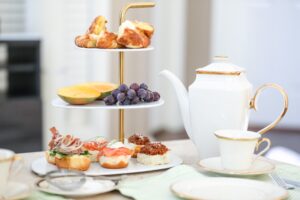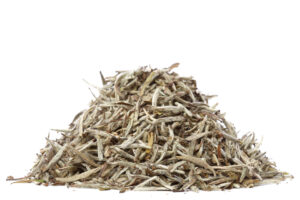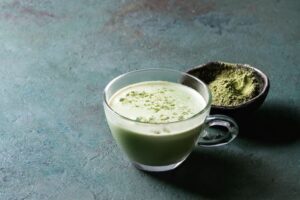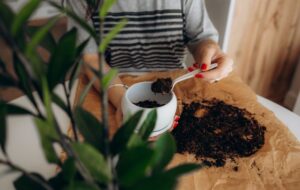Which tea has the most caffeine is something that gets asked often. Yerba Mate tea has the most caffeine, followed by black tea, oolong tea, then green tea.
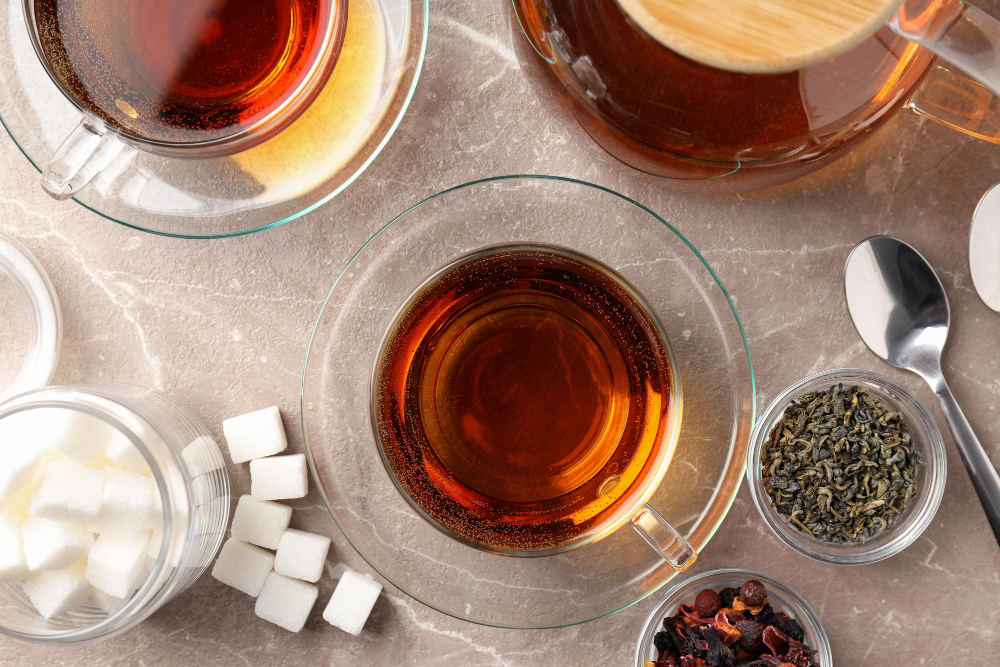
Please see the table below to clarify the caffeine levels of different teas, I have thrown coffee in there too, just as a comparison.
Average Caffeine Levels Per Average Drink
| Type | Milligrams of Caffeine |
| Herbal Tea | 0mg |
| Decaf Tea | 5mg |
| White Tea | 10mg |
| Green Tea | 20mg |
| Oolong Tea | 30mg |
| Black Tea | 50mg |
| Yerba Mate | 80+mg |
| Coffee | 135mg |
Tea comes in a very wide variety of types, so some teas have more caffeine than others. On the same note some have next to no caffeine so if a wake-up call is what you’re looking for you might want to know what you’re after.
What Is Caffeine?
Caffeine is a substance that is naturally found in the fruits and leaves of certain plants. It’s well known as a primary ingredient in coffees, teas, energy drinks, and medications such as headache pills and cough syrup.
Caffeine is a stimulant that helps to increase alertness by increasing brain activity and nervous system activity. It also helps to circulate the chemicals around the body and has been linked to the production of adrenaline. However, if you have too much caffeine, it can make you feel anxious and sleepless, and if you have a heart condition, it’s also not recommended.
Let’s Just Clarify Which Tea Has The Most Caffeine
With so many types of tea out there with different caffeine levels, we thought we’d look at a variety of teas that you can easily find anywhere. Remember, when drinking caffeinated tea you should not have too much!
- Yerba Mate – 85mg per cup
- Silver Needle White Tea – 75mg per cup
- Matcha – 70mg per cup
- Black Tea – 48mg per cup
- Green Tea – 40 mg per cup
- And coffee, with about 100mg, give or take.
Here we’re going to cover 5 types of high caffeine teas that all contain a good amount of caffeine, as well as listing some others that are low on the caffeine scale.
Generally, any cup of tea made with the traditional tea plant is bound to contain caffeine unless, of course, they are decaffeinated. As well as covering the different types of tea with caffeine, we’ve also included some Amazon links to our favorites, so that you can try them out for yourself. Alright, here we go!
High Caffeine Teas
Black Tea
Sitting at around 48 milligrams of caffeine per cup, Black Tea is probably the most common type of tea you’ll find with a high amount of caffeine. It’s used in a lot of varieties of teas that are known for their caffeine content such as English Breakfast tea. Black Tea is typically stronger in flavor and potency than other common tea types such as White, Green, or Oolong.
We recommend Taylors of Harrogate Yorkshire Red as a great, English breakfast black tea.
Matcha
At about 70mg of caffeine, Matcha is among the high caffeine teas. It’s created by mashing green tea leaves which causes it to be somewhat more condensed and potent than regular green tea. This tea comes in a large range of quality, but a typical cup of Ceremonial Matcha can be a great healthy substitute for your morning coffee.
We recommend Ito En Matcha Green Tea as a delicious and affordable choice for your cup of tea.
Green Tea
Out of the most common varieties of tea, the best green tea is typically only behind black tea for caffeine content. At anywhere from 30-45 milligrams of caffeine in a cup, it’s sure to pack a punch. Unlike black tea, green tea is made from unfermented leaves, leaving a much lighter color and flavor.
We recommend Ito En Matcha Green Tea as a delicious and affordable choice for a great cup of tea.
Silver Needle China White Tea
This high caffeine tea is one of the most potent on the list. Although most varieties of white tea don’t have that much caffeine, this specific type has around 75 milligrams of caffeine per cup. This tea is created through much younger tea buds, avoiding all the stems and creating a much more powerful tea. White Peony tea is another white tea with moderate caffeine levels.
Our recommendation: Twinings of London Jasmine Tea for a full-bodied and tasty choice.
Yerba Mate
Coming in at the strongest on the list, Yerba Mate has about 85 milligrams of caffeine in a cup. Which is close to that of a regular cup of coffee.
So, if you’re looking for something to get your day moving this might be the best choice. Largely popular in South American countries, this tea is not made from the traditional tea plant, instead, it’s made from the leaves of the South American holly tree.
It’s long been praised for its healthy vitamin content and ability to provide a less jittery caffeine buzz.
We recommend Yerba Mate Cruz De Malta as a delicious and affordable choice.
Teas That Don’t Have So Much Caffeine
If you’re wondering which teas to avoid if your plan is to get more quick energy there is a number that contains little to no caffeine such as Herbal, Rooibos, or any decaf varieties. Other teas with particularly low caffeine content are Pu-erh and most varieties of White Tea and some green tea varieties.
So now that you know which tea has the most caffeine you’re ready to get your day going. Although this guide will serve you well for general tea caffeine levels, you should always check the specific type of tea to be sure because some teas like the Silver Needle mentioned above contain much more caffeine than other teas within the same family.
What Impacts Caffeine Levels in Tea?
Several factors impact the amount of caffeine within tea, starting right from the beginning of cultivation, all the way through to brewing.
The growing process
Teas prepared from young tea leaves (such as the majority of white tea) and leaf buds have more caffeine content than fully developed leaves. Caffeine functions as a natural pesticide, and since young leaves are more susceptible to insects, they need more protection.
Certain cultivation techniques, including shading plantlets for many weeks before harvest, enhance the amount of caffeine in tea. For instance, shade-grown teas like Kabusecha, Matcha, and Gyokuro all have greater caffeine content.
Harvesting and manufacturing process
Teas produced from spring-harvested leaves, like silver tip tea, contain more significant caffeine levels.
Moreover, roasting the leaves rather than heating them to slow or stop the oxidation cycle results in a decreased caffeine content.
Oxidation
You can mostly determine the amount of caffeine through its oxidation process. Unlike black or oolong tea, white tea is not oxidized. In general, the more oxidized the tea leaf is, the more caffeine carries out into the brewing water.
Preparation method
- Amount of leaves: You will get more caffeine out of your tea when you utilize a lot of tea leaves in the brewing process.
- Water temperature: If you make a cup of tea with hot water, you’ll get more caffeine. On the other hand, if you use cold water, you’ll get less. People often soak white tea in colder water than black teas, which are typically steeped at a higher temperature.
- Steeping time: You can increase the quantity of caffeine in tea by steeping it longer. The steeping period for black teas is often longer than for other tea varieties.
Loose leaf and tea bags
Broken tea leaves have far more caffeine than whole tea leaves. Because teabags contain broken tea leaves, the caffeine content is often greater and released faster.
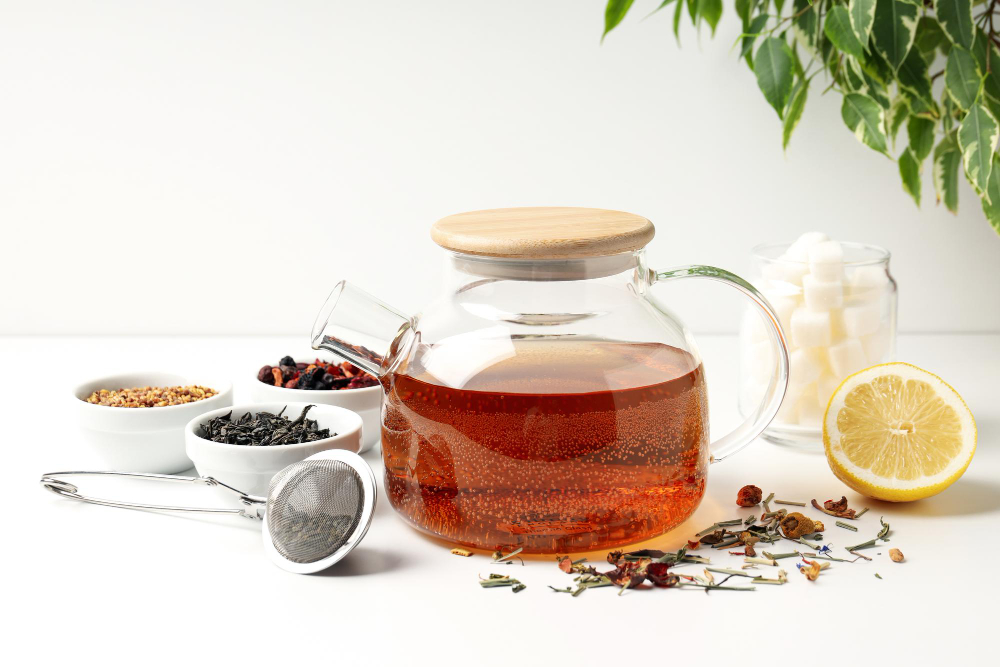
A Quick Caffeine FAQ
What is oxidation?
Oxidation is a series of chemical reactions that affect the overall caffeine levels in tea, as well as the taste and aroma.
Oxidation is achieved by rolling the tea leaves and producing tiny cracks, which react with the oxygen and enzymes already contained inside.
The tea with the most caffeine will be the most oxidized and the darkest, while lighter teas will generally have less caffeine and color.
Does steeping time affect caffeine levels?
Black tea generally has the most caffeine, but the way you steep your drink will also affect caffeine levels. If you use more tea leaves with a higher temperature and brewing time, the overall caffeine levels will be higher.
Does the tea grade affect caffeine levels?
Tea grades refer to the condition of the tea leaves. For instance, you have whole leaves and broken leaves, as well as dusted ones and more.
Generally, if the leaves are already broken, they will deposit more caffeine into your drink. Teabags are a good example of this, as these are very broken leaves. However, loose leaf tea will generally have a stronger flavor and aroma.
Do powdered teas contain more caffeine?
The short answer is yes! The teas with the most caffeine are generally in a powdered form, such as Matcha tea – which can have double the caffeine levels of normal green tea. This is because Matcha tea is made from entire tea leaves which have been ground down as a whole.
Does the production method of tea affect caffeine levels?
No matter how long you brew your team, the caffeine levels are also affected by where and how the tea leaves are grown.
Leaves grown in the shade (such as Matcha) contain higher caffeine levels because of how the chlorophyll and amino acids change depending on light availability.
What are the negative effects of caffeine?
The effects of caffeine are usually felt somewhere between 5 and 10 minutes after ingesting. While there are some benefits to having caffeine, if you do have too much, you may experience the following effects. If they persist after a few days of stopping your caffeine ingestion, please see a doctor.
- A rise in body temperature and frequent urination
- Anxiety and irritability
- Trembling hands
- Rapid heartbeat (palpitations)
- Restlessness and excitability
- Energy followed by deep lethargy
- Sleeplessness
- Dehydration
- Dizziness and headaches
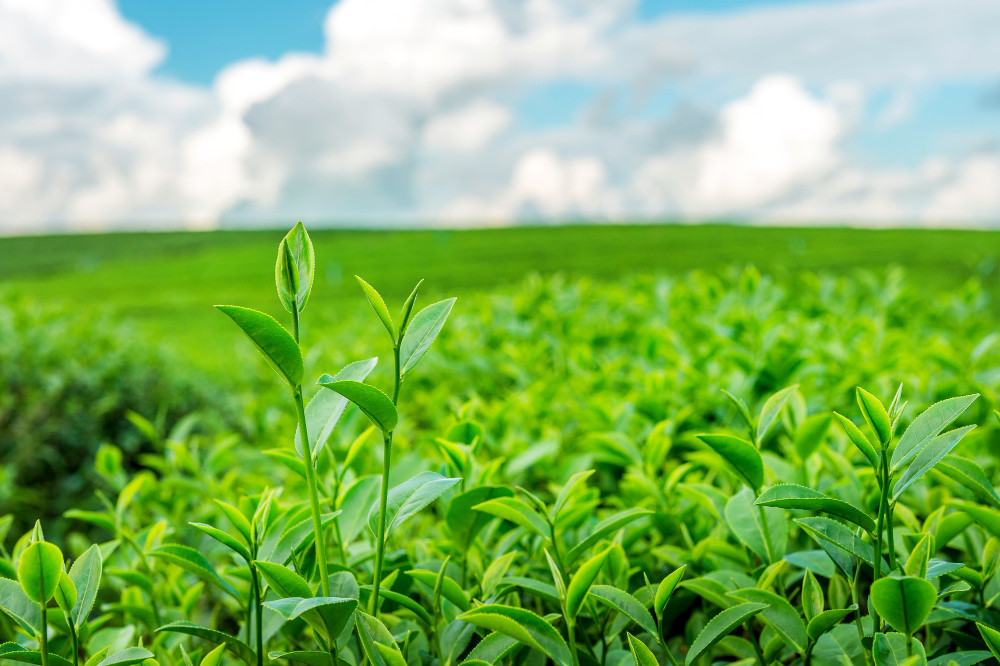
Which Tea Has The Most Caffeine Conclusion
All teas derived from the Camellia Sinensis have some level of caffeine. But, you must remember it is not just about the level of caffeine present, it’s how much you drink too!
As long as you keep things moderate, the caffeine content of your tea can be a very good thing. Whether you like black teas, green teas, white teas, or even coffee, you can enjoy caffeinated drinks that will boost your energy levels and make you feel great.
So it doesn’t really matter which tea has the most caffeine, it’s about moderation too. The best part of all? There are so many different varieties of tea out there, that you’re sure to find one that’s just right for you. Enjoy!

